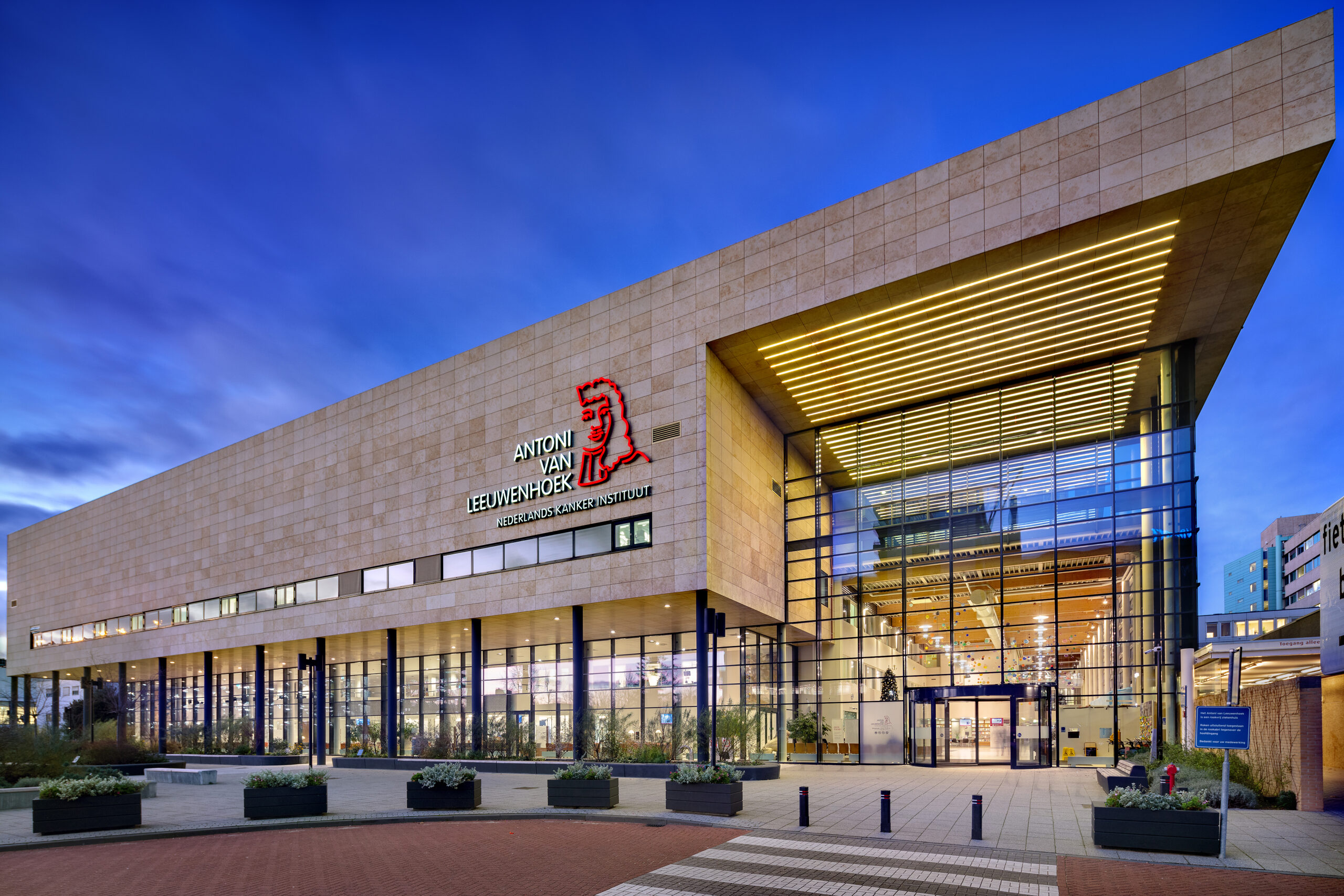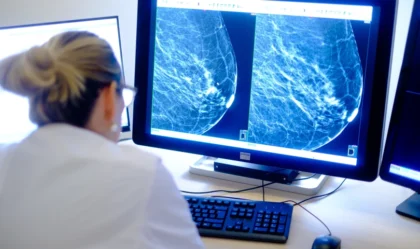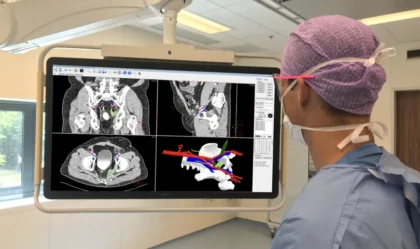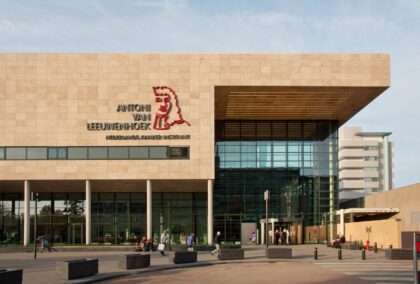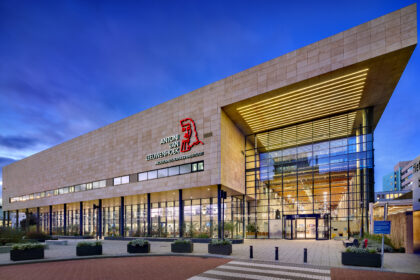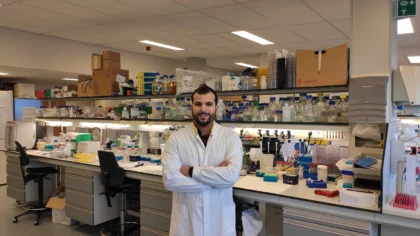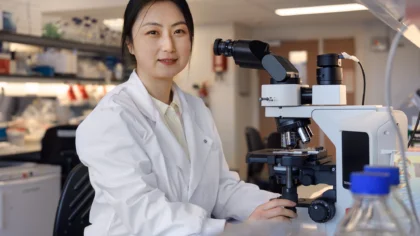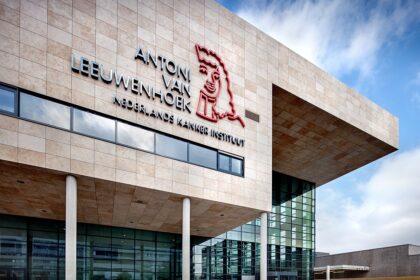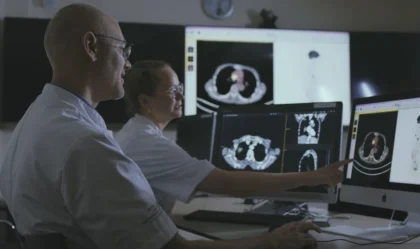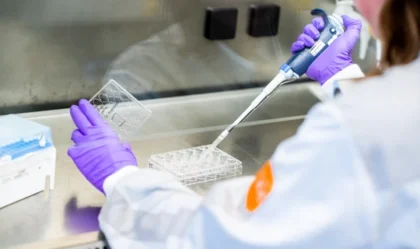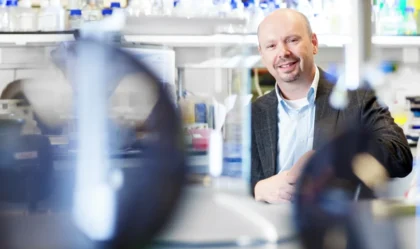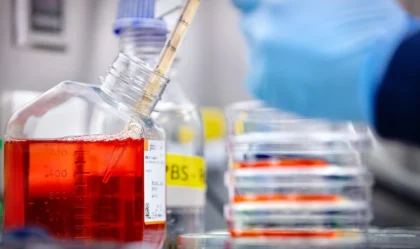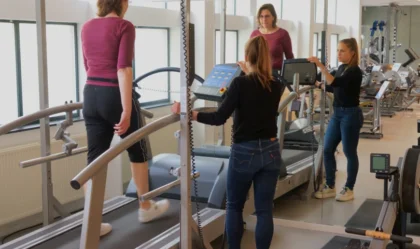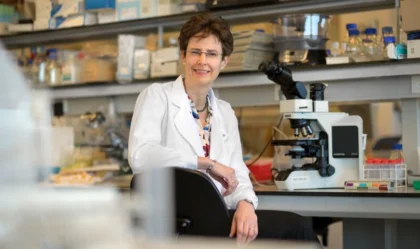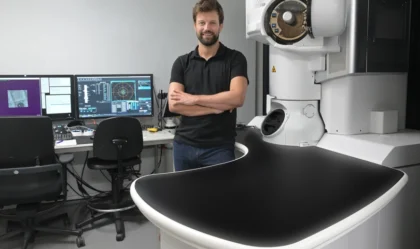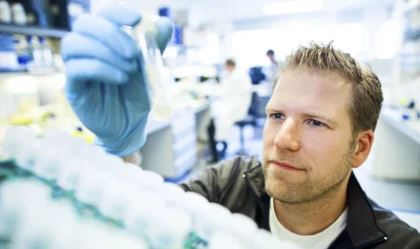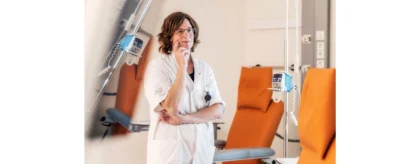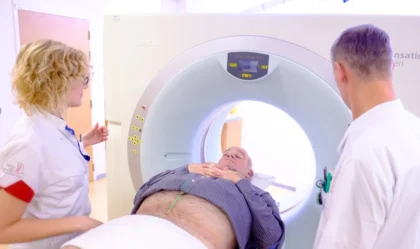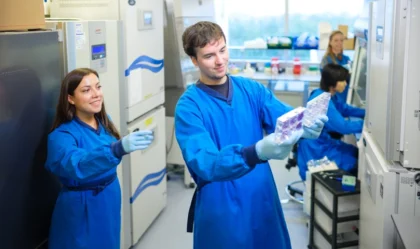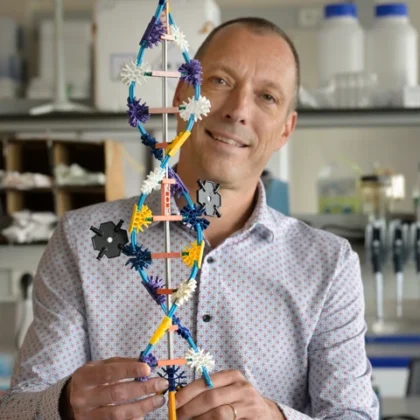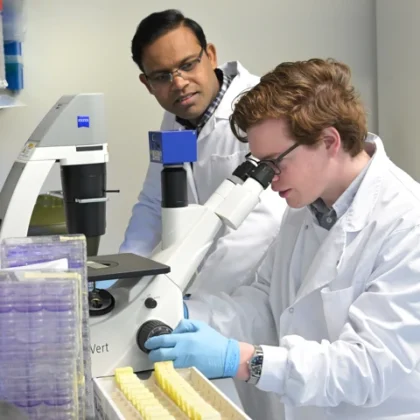About the clinic
The Netherlands Cancer Institute – Antoni van Leeuwenhoek Hospital (NKI-AVL) is internationally recognised as one of the most advanced oncology centres in Europe. Located in Amsterdam, the Netherlands, it was established in 1913 and today represents the unique integration of a comprehensive cancer hospital and a leading scientific research institute. This close collaboration allows the rapid transfer of laboratory discoveries into clinical practice, giving patients access to cutting-edge therapies years earlier than in most hospitals.
NKI-AVL serves patients from the Netherlands and around the world. Its reputation as a top hospital in Amsterdam is based on a combination of advanced medical technologies, internationally renowned specialists, a high level of patient safety, and continuous participation in pioneering clinical trials. With more than 3,000 staff members, including oncologists, surgeons, radiologists, pathologists, and nursing teams, the institute delivers personalised cancer care to thousands of patients every year.
The mission of NKI-AVL is clear: to provide excellent care for every patient, while constantly striving towards new solutions and cures through research. Explore why thousands of patients choose Netherlands Cancer Institute – NKI-AVL for treatment abroad.
Key Specialties and Departments
The hospital covers the full spectrum of oncological care and is structured into specialised departments that work in multidisciplinary teams. Each department offers innovative therapies combined with compassionate care.
- Medical Oncology — Offers systemic therapies including chemotherapy, hormone therapy, targeted therapy, and immunotherapy. The department is also heavily involved in international drug trials, allowing patients to access novel therapies that are not yet widely available.
- Breast Cancer Centre — The largest specialised breast cancer centre in the Netherlands. Provides rapid diagnostics, second opinions, and innovative approaches such as the MARI procedure and advanced genetic testing to personalise therapy.
- Head and Neck Cancer Centre — Offers highly specialised treatments for cancers of the mouth, throat, thyroid, and larynx. Teams focus on preserving essential functions like speech and swallowing through minimally invasive and robotic-assisted surgery, as well as advanced radiotherapy.
- Cell Therapy Centre — Dedicated to innovative immunotherapies, including tumour-infiltrating lymphocyte (TIL) therapy, CAR-T cell therapy, and TCR-gene therapy. Many of these treatments are part of groundbreaking clinical trials.
- Interventional Radiology — Provides minimally invasive, image-guided treatments such as tumour ablation and catheter-based procedures. These methods allow tumour control with less trauma and faster recovery compared to open surgery.
- Early Drug Development Centre — Specialises in phase 1 and 2 clinical trials, offering patients with advanced or rare cancers early access to promising new drugs and targeted therapies.
- Radiotherapy Department — Operates more than 10 radiotherapy units with state-of-the-art imaging systems. Known internationally for its pioneering role in MRI-guided radiotherapy and adaptive treatment planning.
Technologies and Facilities
NKI-AVL is equipped with one of the most advanced infrastructures for cancer treatment in Europe. The hospital continuously invests in modern equipment to ensure the highest standards of precision and patient comfort.
- High-End Imaging — 3 Tesla MRI, PET-CT and advanced CT scanners provide detailed anatomical and molecular information, crucial for precise diagnosis and treatment planning.
- Robotic Surgery — The Da Vinci surgical system is used in complex oncological surgeries, enabling high precision with minimal tissue damage, less pain and faster recovery.
- Modern Radiotherapy — Includes image-guided radiotherapy (IGRT), cone-beam CT, stereotactic radiotherapy, and MRI-guided treatment, ensuring highly accurate tumour targeting while protecting healthy tissue.
- Genomics and Molecular Pathology — On-site laboratories conduct genetic and biomarker testing, enabling personalised treatment strategies based on the biology of each tumour.
- Operating Theatres and Intensive Care — Multiple operating theatres, advanced anaesthesiology units, recovery areas, and intensive care facilities ensure safety during complex procedures.
- Digital Patient Systems — Integrated electronic medical records and telemedicine consultations facilitate smooth coordination for international patients.


